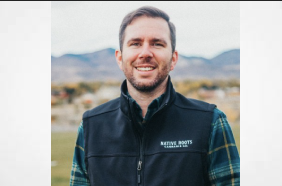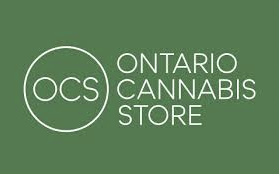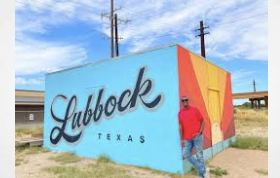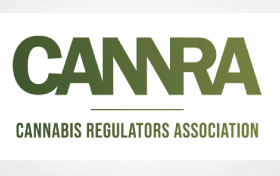Lisa L. Pittman, Pittman Legal, Austin, Texas
Insurance coverage is complicated. An insurance policy can consist of a couple hundred pages that include numerous coverage forms; lists of defined terms of great legal significance such as “occurrence,” “property damage,” and “bodily injury;” pages of exclusions; pages of endorsements that modify the coverage forms; and riders that condition or limit the coverage. A declarations page summarizes the coverage, defines who the insured is (also an issue in coverage cases), and states the various monetary limits to various types of coverage. It takes reviewing a policy numerous times, with post-its, a marker and a highlighter, to conclude what is actually covered and not covered. This was not easy for me, as an attorney trained in scouring insurance policies and then litigating them for over a decade, so I cannot imagine how daunting this process is for a small business owner.
When an insured sues an insurer for refusing to pay a claim, it is referred to as a “first party” or in some states, a “bad faith” lawsuit. The claims are usually breach of contract, deceptive trade practices, and applicable statutory and common law claims. The court will be tasked with determining whether there is coverage by following several tenets of insurance law. Interpretation of an insurance policy is a question of law. The court is limited to reviewing the plain language of the insurance policy, casting all ambiguities in favor of the insured, with the facts of the loss, or in the case of an active lawsuit or the duty to defend an insured, the types of allegations in the petition made against the insured. Extrinsic evidence is only allowed when the policy language is ambiguous. This is called the 8 corners rule: the 4 corners of the policy, compared with the 4 corners of the complaint.
The burden of proof is on the insured to show coverage, and on the insurer to prove an exclusion to coverage. In the case of cannabis coverage cases, the court also has to determine the impact of conflicting federal and/or state law on the situation – some policies, even when knowingly insuring marijuana businesses, have exclusions for violations of federal law/policy, controlled substances exclusions, or even specific marijuana exclusions – despite that being the purpose of the policy. An insurer will argue either that coverage has not been triggered, or that an exclusion precludes coverage, or both! If an insurer loses one of these cases, they can be assessed up to treble damages in most states. If the insured can demonstrate issues of material fact exist about the nature of the loss, then the insurer cannot win summary judgment as a matter of law and the case will go to a jury to decide. Juries hate insurance companies.
Securing insurance coverage to begin with is no walk in the park either. Marijuana and hemp are considered high risk, in a similar category to topless bars, liquor, and guns. These “specialty” coverages are typically insured by excess and surplus lines of insurance that cater to these unique risks. No A rated admitted carriers currently provide cannabis coverage. Other complications in evaluating coverage options include, sometimes the premiums and deductibles are too high to maintain the coverage, the limits are too low to justify it, a specific product is not covered (like delta 8), or the exclusions eat up the policy. There are brokers that specialize in these markets and it is possible to secure some coverage if you know where to look. This article is going to survey the past twenty years of notable cannabis coverage disputes.
Both hemp and policy nerds can rejoice at this one…In Bogard v. Cty. Mut. Ins. Co., a fire occurred in the home of the insured while he was manufacturing a hemp salve in Oregon in 2017. The insurer denied the claim based on the Controlled Substances exclusion since the Total THC of one of the harvests was .381%, and therefore, marijuana. Thus, the court was faced with squaring Oregon hemp law before the 2018 Farm Bill, with federal law which had not yet distinguished between hemp and marijuana, with two different standards for measuring Total THC in a substance involving two harvests. At issue was whether THCA should be included in the Total THC calculation, which at that time was used by Oregon state law, but not federal law. Testing from the 2017 Harvest showed compliant levels of delta-9 THC, but .435% THCA using the Oregon regulation, and when multiplied by .877 and added to the calculation, the Total THC became .381%. The 2018 Harvest delta-9 THC was .0365%, the THCA was .254%, resulting in Total THC of .259%. No lawyer likes to do math so the Court held that since the insurance policy did not reference Oregon’s standards for Total THC calculation, the simple and later adopted U.S. Farm Bill definition of hemp as containing less than .3% THC by dry weight applied, and therefore the substance was hemp and not a controlled substance, so the insurance company had to cover the loss.
The next case demonstrates the creativity required in arguments with an insurance company. In Am. Fam. Mut. Ins. Co., S.I. v. Big Bush Farms LLC, the court evaluated whether there was a duty to defend an insured in a lawsuit alleging breach of contract, conversion, and unjust enrichment resulting from a failed business deal involving faulty seeds which caused a lower yield of industrial hemp. The insurer refused to defend, citing the exclusion to the definition of “property damage” for “physical injury to marijuana or cannabis plants … even if legal in your state.” The insurer argued that hemp is cannabis and therefore excluded. The insured cleverly pointed out that no physical damage to cannabis plants were alleged, rather, due to the low yield from the bad seeds, the plaintiff was deprived of the possession of the hemp and the resultant harm from the “loss of use of tangible property,” which is included in the definition of “property damage.” Unfortunately, the Court held that since the policy excludes coverage for physical injury to cannabis plants, the “loss of use” coverage for those plants was also excluded.
Are butane fires covered causes of loss? It depends on the policy, but in Laber v. Nationwide Prop. & Cas. Ins. Co., , the insurer successfully relied on a residential exclusion for “increased hazard,” which was defined as any loss occurring while a hazard is increased by a means within the control and knowledge of the insured.” The court explained that the actions of the insured in manufacturing hash with butane in his home was an increase in hazard, thus the significant claim for destruction of three apartment buildings was denied.
In Kinsale Ins. Co. v. JDBC Holdings, Inc., , the insurer sought rescission of the insurance policy after a chemical fire resulting from hemp manufacturing occurred, due to several exclusions, one being the “procedural safeguard” endorsement concerning theft. This endorsement provides that if certain protective equipment were not installed by the insured, that the policy is terminated. The Court disregarded this endorsement as inapplicable since it only pertained to theft. Then, the insurer argued that coverage will not issue when there is a misrepresentation on the insurance application, which the insurer argued fell under the “concealment, misrepresentation, or fraud” exclusion. When the insured applied for coverage, they wrote the sprinklers were “being installed,” when installation had not begun yet, and still was not completely in place at the time of the fire. The court held that since the insured admitted the sprinklers were only being installed and the insurer accepted the coverage and took the premium, that the insurer had a duty to pay the claim.
JDBC Holdings, Inc. also dealt with the pollution exclusion, which the insurer argued also barred coverage of the claim because the chemicals exuded from the fire constituted seepage of smoke from a hazardous substance. The Court disagreed, holding smoke damage is a covered loss under the policy, and to the extent this is ambiguous, it had to be resolved in favor of the insured. The Court also admonished that, “an exclusion in a general business liability policy should not be so construed as to ‘strip the insured of protection against risks incurred in the normal operation of his business,’ especially when the insurer was aware of the nature of the insured’s normal operations when the policy was sold.” An insurer asserting multiple possible bases to deny coverage, even if not the one originally relied upon by the insurer, is extremely common.
Very similar facts and holding can also be found in the Nationwide Mut. Fire Ins. Co. v. McDermott, case; however the Court in that case held that the failure to notify the insurance company of butane marijuana extraction in a house’s basement that burned down due to that activity voided the coverage because the insured knowingly omitting a material fact about a change in use of the policy as required by an endorsement. The court also referenced the increased hazard and intentional acts exclusions to deny coverage, and held that the conversion of the basement into a marijuana extraction business created liability for the insurance carrier that it did not assume.
In Barnett v. State Farm Gen. Ins. Co., , the insured sought coverage for marijuana plants seized and destroyed by police in this 2011 case. The policy did not define theft or stolen. But, the Court held these terms have well understood meanings. Coverage depended on the interpretation of the nature of the theft – the Court noted theft must include an intent to steal the property. Noting the insured could not show that the police intended to steal the marijuana, the Court held no theft occurred. Moreover, the Court held the insured was not entitled to get the marijuana back, especially once the insured was charged criminally in the matter for having too many plants.
In Tracy v. USAA Cas. Ins. Co., a Hawaii caregiver sought coverage for stolen marijuana plants under her homeowners policy. While the Court noted that her having too many plants might void coverage under state law, and that the insured had an insurable interest in the plants, it concluded there was no coverage because marijuana is still a Schedule One, federally illegal plant, rendering the policy void against federal law/policy. The policy’s exclusion stated there was no coverage for claims relating to the use, sale, manufacture, or delivery of marijuana.
In Green Earth Wellness Ctr., LLC v. Atain Specialty Ins. Co., the insured sought coverage following a nearby wildfire, contending the smoke damaged mother plants, flower plants, vege plants, clones, and finished product. The insured believed the plants would be covered under “stock,” meaning: “merchandise held in storage or for sale, raw materials and in process or finished goods.” Because the defined term “raw material” was ambiguous under the policy, it was construed in favor of the insured here. However, the Court ruled that “growing crops” exclusion negated coverage. At issue were whether the various life cycles of plants were considered growing crops, since the plants were potted rather than free standing attached to the earth – but, the Court held that growing crops includes mother plants and clones, and therefore coverage was excluded.
In Bowers v. Farmers Ins. Exch., the insured sued his insurer for refusing to pay a claim under the landlord’s insurance policy for mold damage caused by the destruction of a basement marijuana grow of which the landlord was not aware. The Court denied coverage on the basis that the tenant’s actions in the basement constituted vandalism, which was an excluded loss in the policy, and that tenant’s actions were a proximate cause of the loss.
This survey is but a small smattering of the coverage issues plaguing cannabis businesses. Other common exclusions in a cannabis insurance policy include violation of ordinance or law, contraband, outdoor plants, criminal acts, employee dishonesty, health hazard, vaping, fungus, RICO, and intoxication. The exclusions discussed by the cases in this paper include controlled substances, cannabis/hemp/marijuana plants, procedural safeguards, increased hazard, intentional acts, concealment/misrepresentation/fraud, pollution, void against federal law/policy; sale/manufacture/delivery of marijuana, growing plants, vandalism, and mold. Some policies will contain endorsements or exclusions for certain products, like tea or coffee, for example, when those are common substances infused with hemp CBD. It is therefore necessary to comb every page of the policy to assess whether it is the right one for you – the insured will be held to have understood and known what they agreed to in accepting the policy language in the insurance contract.
As time goes by and there is more historical data, and if federal legalization in some form happens, it will become easier to obtain coverage, less riddled with exclusions, and at better prices. Until then, coverage is limited to a few carriers, and the customers must diligently review the proposed insurance policy to determine whether the coverage sought is contained in the policy. Brokers and lawyers familiar with insurance coverage can help elucidate what is and is not in the policy. There are also pros and cons to weigh in deciding to file a claim to begin with. The case law should further develop as more first party lawsuits are filed by cannabis businesses, for denials of claims just like any other business. Most insurance coverage cases are filed in federal court, and it should be noted here that these courts have not shied away from marijuana related claims just because of the federal illegality – courts still apply the applicable state law underlying the dispute in the same manner as they would decide any other case.
I look to make my next niche the niche niche niche area of cannabis insurance coverage cases. If you have any questions about a policy or the process, feel free to give me a call. Insurance is dreadful, no doubt about it; but, it is necessary to protect your business.




















